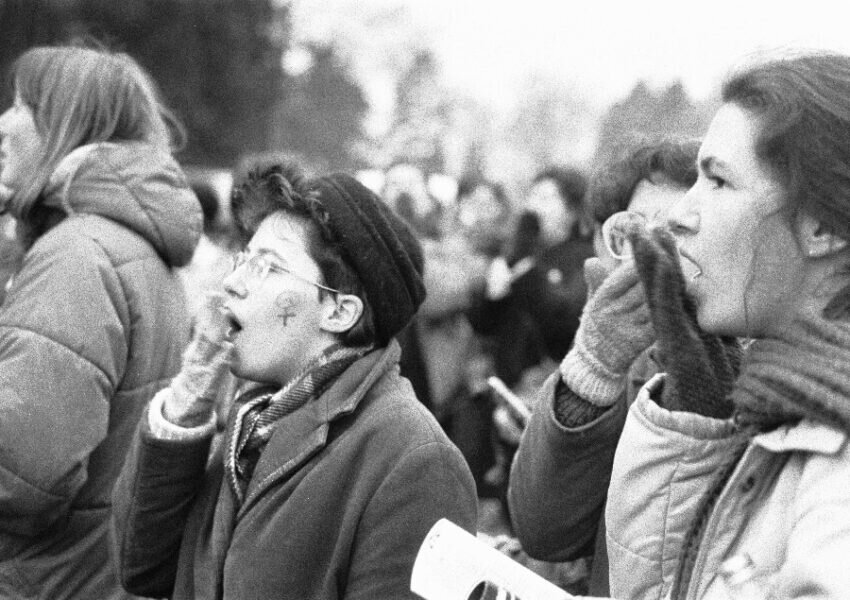LFF 2021: Mothers of the Revolution
LFF 2021In the social climate of gender politics, a new wave of feminism and the consistent emerging threat of self-annihilation due to the self-imposed ego from Governments far and wide has risen – not to mention the 35 billion investment of Trident from the UK Conservative Party. Things don't seem to have changed much since the Greenham Common’s peace camp that strived to do the right thing when it looked like the flirtation of Nuclear holocaust had evolved to first base.
Directed by Briar March, Mothers of the Revolution is a well-executed and produced documentary that crafts a compelling two narrative story with strong doses of tone and poignancy. The thematics are quite brilliantly produced here, of course, with the thankful notion of hindsight, yet this feature bubbles with character. As aforementioned, there are two arcs within, ultimately, one narrative. One arc is the story in 1981 with the formulation, evolution, and history of Greenham Common’s peace camp. The second is the declaration and story told to the audience in the present by the very same women shown in 1981. This dual arc curates a strong bond of material and depth that accumulate into a poignant tapestry of story as well as immersion. While it might not instigate a thrilling story of action-oriented conventions or James Bond-level of near-death scrapes, March’s film is not about this. It is about celebration of people coming together. A coming together of minorities who not long before we're only afforded the right to vote and the legalisation of abortion fifteen or so years earlier.
This is a story not particularly about the nuclear holocaust either, and while such a theme weighs heavily and is clearly a motivator for the formulation of said group, it is not the defining characteristic of this documentary – of which would be the camaraderie and story of these women. Granted, March can only interview so many of this group, but the women who are put forward craft not only a compelling but a dignified and ever so bluntly honest story. Monologues of the bitter reality at hand with the breaking or marriages, destroyed relationship with children, and the constant threat of societal expulsion always lurking in the background. The two threads of dread are approached with the same brevity and gravitas, with March alongside the editing team do a fabulous job of giving both themes a life and connective emotive prowess.
Mothers of the Revolution equally does a fantastic job of intercutting footage from 1981 into fitting monologues of powerful or expositional narration. The footage itself looks exquisite and builds a strong atmosphere. The only real misstep would be the documentary's inclusion of dramatic reenactment with actresses playing said narrators on screen. Granted, while this continues the immersion and narrative storylines, it does in fact fall foul in leading the tone away and immersion into something that echoes a rather differing aesthetic and, therefore, ideology.


